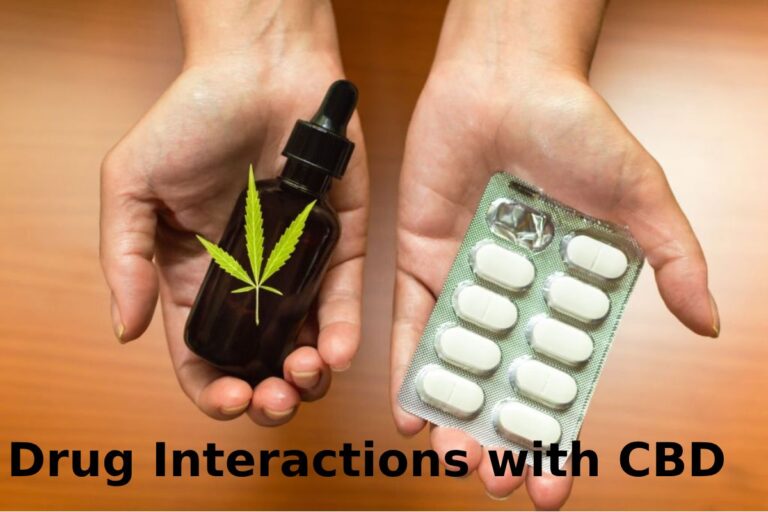Introduction
Drug Interactions with CBD – Cannabidiol, commonly known as CBD, has recently gained significant popularity due to its potential health advantages and lack of psychoactive effects. As more individuals integrate CBD into their health routines, it becomes imperative to comprehend possible interactions between CBD and other medicinal substances. While CBD is generally regarded as safe, it can interact with specific medications, potentially impacting their efficacy or causing adverse reactions. This comprehensive guide examines medicines that should not be combined with CBD to ensure well-informed and secure usage.
Mechanism of Drug Interactions with CBD
Before delving into particular medication interactions, it is essential to grasp how CBD interacts with medications. CBD affects the body’s endocannabinoid system, a critical regulator of various physiological processes. This interaction can potentially influence the metabolism and absorption of drugs, potentially altering their effects.
Medications That Should Not Be Combined with CBD:
- Blood Thinners (Anticoagulants): Research indicates that CBD can inhibit certain enzymes responsible for drug metabolism, such as cytochrome P450. Due to CBD’s inhibitory effect, drugs like Warfarin, metabolized by these enzymes, can experience elevated levels in the bloodstream. This may elevate the risk of bleeding complications. Individuals using blood dilutions should consult their healthcare provider before using CBD.
- Antiepileptic Drugs (AEDs): Some studies suggest that CBD may interact with antiepileptic drugs, potentially impacting their blood concentration. Such interactions could influence the effectiveness of AEDs and potentially heighten the likelihood of side effects. Patients utilizing AEDs should seek medical guidance before incorporating CBD into their treatment plan.
- Anti-Anxiety and Antidepressant Medications: CBD is often utilized for managing anxiety and depression, but it can interact with medications commonly prescribed for these conditions. Concurrent usage of CBD with selective serotonin reuptake inhibitors (SSRIs) or benzodiazepines might result in increased sedation and drowsiness. Individuals taking these medications should refer a healthcare specialist before using CBD.
- Immunosuppressants: Immunosuppressive medications are prescribed to prevent organ transplant rejection and treat autoimmune disorders. CBD’s interaction with the endocannabinoid system may influence the metabolism of these drugs, possibly leading to fluctuations in blood levels. Patients on immunosuppressants should discuss CBD with their physician to ensure consistent drug levels and avoid compromising treatment.
- Heart Medications: CBD’s impact on blood pressure and heart rate is documented. Combining CBD with hypertension or other heart-related medication could potentially lead to cardiovascular parameter fluctuations. Patients with heart conditions should consult their healthcare provider before using CBD products.
- Sedatives and Sleep Aids: CBD’s calming effects might interact with drugs prescribed for sleep disorders or sedation. Combining CBD with sedatives could amplify their effects, resulting in excessive drowsiness. Individuals using sedatives or sleep aids should seek medical advice before CBD usage.
Conclusion of Drug Interactions with CBD
Although CBD holds promise for various health benefits, it is imperative to approach its usage cautiously, especially when concurrent use with other medications is involved. The potential interactions between CBD and specific drugs can significantly impact treatment outcomes and patient safety. Before incorporating CBD into your health regimen, it is vital to consult a qualified healthcare professional who can offer modified guidance based on your medical history and current medications. Transparent communication and collaboration between patients and healthcare providers are essential for ensuring safe and effective CBD usage alongside other medicines.


